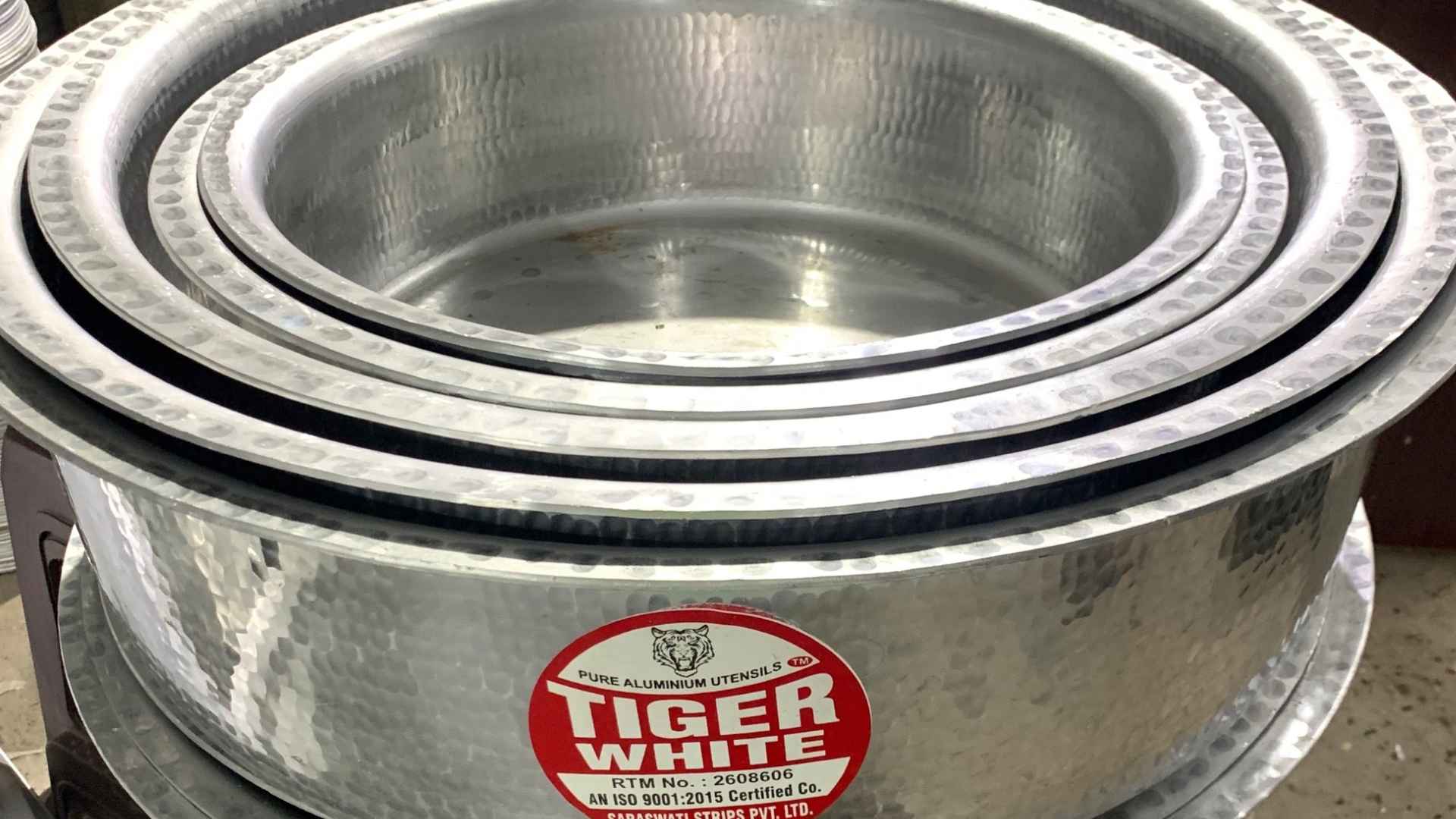Cookware still on store shelves may pose a lead risk, the Food and Drug Administration warned on Aug. 13. The alert follows tests on pots linked to an Indian manufacturer; young children, people of child-bearing age, and those who are breastfeeding are especially vulnerable.
The FDA tested cookware sold under the Tiger White brand, made by Saraswati Strips Pvt. Ltd., and found alloys such as Hindalium/Hindolium or Indalium/Indolium—materials that can leach lead into food. No lead level is safe. Because the agency couldn’t reach a distributor to initiate a recall, affected items may remain available.
What cookware models and brands are included in the FDA warning today
The warning focuses on kadais/karahis—deep pots used for simmering and frying—sold under the Tiger White brand. Two items were tested at Mannan Supermarket in Jamaica, New York, labeled “Pure Aluminium Utensils Tiger White RTM No: 2608606… Saraswati Strips Pvt. Ltd. India.” The FDA cautions more products could be added as the investigation continues.
Key items identified so far
| Brand | Item type | Manufacturer | Store tested | Label details |
|---|---|---|---|---|
| Tiger White | Kadai/Karahi deep pots | Saraswati Strips Pvt. Ltd. (India) | Mannan Supermarket, Jamaica, NY | “Pure Aluminium Utensils Tiger White RTM No: 2608606… Saraswati Strips Pvt. Ltd. India.” |
This description may match items in home kitchens; check yours carefully. How to handle suspected Tiger White aluminum pots at home safely? If you own similar cookware, act now to protect your household.
- Stop using the pot immediately and discard it; do not refurbish or repair it.
- Check your kitchen for Tiger White labels or the description above.
- If you’re concerned about exposure, contact your health care provider for guidance.
- Keep any suspect cookware away from food storage and children until disposed of.
Retailers and distributors: compliance steps and testing protocols to follow
Businesses are responsible for ensuring product safety and should move quickly.
- Review inventory for similar imported aluminum cookware and remove questionable items.
- Use the FDA’s lead-leach testing protocol for cookware or another validated method.
- Consult the FDA on current safety and regulatory status; document all actions.
- Direct questions to the agency at premarkt@fda.hhs.gov.
Why lead exposure from cookware is dangerous for families and children? The FDA prohibits lead in food-contact products because the metal is toxic and can migrate into food. Even low exposures are tied to fatigue, headaches, stomach pain, vomiting, and neurologic changes. Who should pay closest attention? Pregnant and breastfeeding people and families with young children, since lead can cause learning difficulties, lower IQ, and lasting behavioral changes—even without obvious symptoms.

